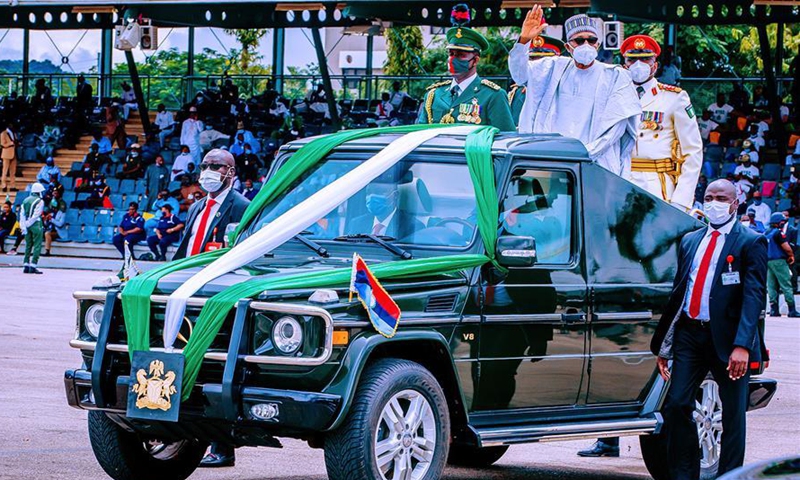Niger set for historic transition in presidential vote
Source: AFP Published: 2020/12/24 17:49:20
Niger hopes to make history on Sunday when elections set it on course for its first-ever peaceful transition of power despite a raging Islamist insurgency and economic woes.

The man who has been in charge since then, President Mahamadou Issoufou, has gained high marks for announcing that he will hand the baton to his elected successor.
Two other nations in West Africa, Guinea and Cote d'Ivoire, have been rocked by violence in 2020 after their heads of state pushed through changes to the constitution. They declared their counter on presidential limits had been reset to zero, enabling them to bid for a third spell in office - a move that triggered protests.
"My most burning desire is to hand over power in 2021 to a democratically elected successor," Issoufou has said.
"This will be my finest achievement - it will be a first in the history of our country."
French President Emmanuel Macron has heaped praise on Issoufou, describing him as an "example for democracy" while his foreign minister, Jean-Yves le Drian, declared "the quality of the [December 27] elections will be a benchmark for all of Africa."
Former prime minister Hama Amadou, 70, was barred in November from contesting the vote on the grounds that in 2017 he was handed a 12-month term.

Nigerian President Muhammadu Buhari inspects the guard of honor during the Independence Day celebrations in Abuja, Nigeria, October 1. Nigeria celebrated its 60th Independence Day on Thursday. Photo: Xinhua
The world's poorest country by a key UN benchmark, the Sahel nation has never had two elected leaders hand over power since independence from France 60 years ago - the last coup was only a decade ago.The man who has been in charge since then, President Mahamadou Issoufou, has gained high marks for announcing that he will hand the baton to his elected successor.
Two other nations in West Africa, Guinea and Cote d'Ivoire, have been rocked by violence in 2020 after their heads of state pushed through changes to the constitution. They declared their counter on presidential limits had been reset to zero, enabling them to bid for a third spell in office - a move that triggered protests.
"My most burning desire is to hand over power in 2021 to a democratically elected successor," Issoufou has said.
"This will be my finest achievement - it will be a first in the history of our country."
French President Emmanuel Macron has heaped praise on Issoufou, describing him as an "example for democracy" while his foreign minister, Jean-Yves le Drian, declared "the quality of the [December 27] elections will be a benchmark for all of Africa."
Former prime minister Hama Amadou, 70, was barred in November from contesting the vote on the grounds that in 2017 he was handed a 12-month term.
Posted in: AFRICA